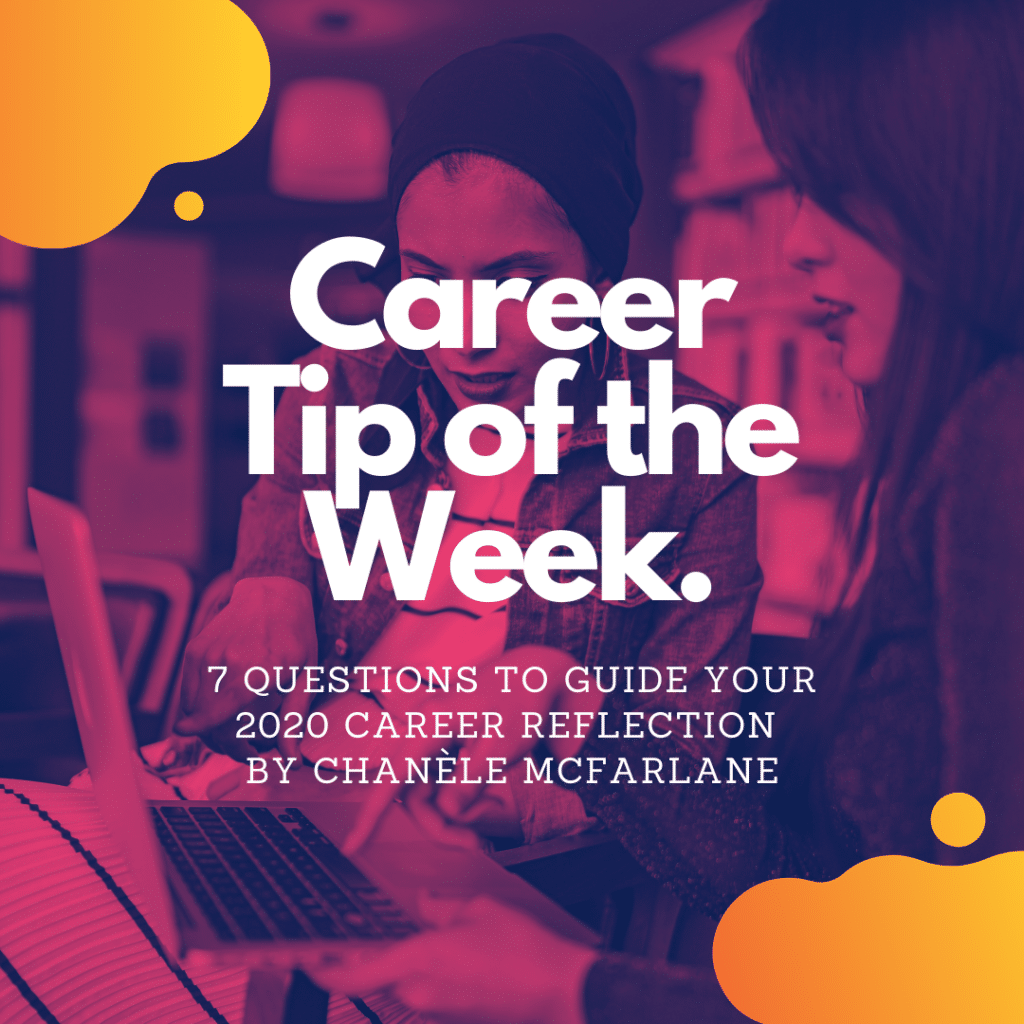By: Chanèle McFarlane
As in previous years, many of us sat down in January 2020 and mapped out our goals, created a vision board, bought a fresh new planner and eagerly anticipated the months ahead.
And, then…the pandemic hit and completely threw a wrench in our plans. In addition to the personal repercussions, school, work and our careers pretty much changed overnight. A shift to work from home, virtual learning, never-ending Zoom meetings and not to mention, the layoffs.
So, as we approach the end of an unprecedented year, you may not exactly be feeling like you want to do any kind of career reflection. Trust me, I get it. However, even in the most challenging of times, self-reflection is a pivotal activity. It allows you to learn more about yourself, providing you with critical data to help you move forward with intention.
Perhaps this year has encouraged you to rethink the program you’re taking and/or the type of role you’d like to land post-graduation. Maybe you’ve felt inspired to revisit your personal mission and how you can create a career that allows you to be financially stable, while also creating an impact.
Well, here are 7 questions to help guide your career reflection:
- What did I learn this year?
When you first think about this question, your mind might immediately start to think about courses you took or books you read. Yes, you certainly want to reflect on the external topics you’ve learned but what have you learned about yourself? Did you gain more insight into your personality, strengths, values or the way you like to work? Self-awareness is considered one of the top emotional intelligence skills required to be a great leader in our new working world. According to an article on
Entrepreneur, you’ll be able to express yourself better, in addition to resonating and collaborating with others better.
- What skills are needed to succeed in a post-COVID world? What does my skills gap look like and how could I fill it?
Reflect on the two types of skills. First, job-specific skills – these are the things that are tied to a particular job or role. The second type are marketable (or transferable) skills which are the things that are useful, regardless of job or industry. For example, communication, collaboration, public speaking, etc. Want some more insight? Check out
RBC’s Human’s Wanted study that speaks to how youth can thrive in the age of disruption.
So, how do you figure out which skills you should focus on? Look through current job descriptions to see what employers are looking for. Check out leading career platforms like
Indeed. Another great way to do research is to reach out to people in your network and/or in jobs you’re interested in and ask for their perspective. Once you’ve gained some information, you can begin to look into how you can acquire these skills. Thankfully, there are so many great online learning platforms such as Coursera, Linkedin Learning and Udemy (just to name a few!) so you can take your pick. If you’re still in school, you may get free access to some learning platforms so be sure to research this so you save yourself some money!
- Have my job non-negotiables changed as a result of COVID? What would you like to stop, start and continue doing in your current or next role?
Speaking of self-awareness and learning, have you discovered some things that you absolutely want to have in your career? Perhaps with all the time at home, you’ve realized that you want a full-time remote role? One of my absolute favorite activities is a Stop, Start, Continue. Grab a sheet of paper or open up a new Google doc and create a chart with 3 columns. In the first column, jot down everything you’d like to
stop doing in your career. In the middle column, write all the things you would like to
start doing and then in the last column, list everything you’d like to
continue doing. This activity is very helpful because it serves as a great starting point for yearly goal-setting.
- How has COVID impacted my industry and my role?
Unfortunately, the pandemic has affected pretty much every industry but having a clear understanding of exactly how will allow you to be proactive in your career planning. I recommend doing a Google search of “covid-19
[insert industry here] ” and take some time to read through any articles and news reports. It’s easy to feel discouraged but you may just uncover some exciting new opportunities that have emerged because of these changes! Also consider attending career panels with professionals from your industries of interest often hosted by your college or university, and be sure to ask questions. It’s a prime opportunity to gain insider knowledge and make valuable connections.
- What are my most important accomplishments?
Don’t sell yourself short. It may have been a tough year and perhaps you may not have achieved every goal you set for 2020, and that’s ok! You should still give yourself credit for your small wins. Did you manage to complete your year of virtual classes? That’s an accomplishment. Did you attend your first Zoom networking event? That’s also an accomplishment. Nothing is too big or too small – as long as it means something to you, you should absolutely recognize and celebrate it as an accomplishment.
- Who were the most valuable people in my network?
As you think about your personal and professional networks (growing your network starts while you’re in school! Your friends, classmates, professors, managers and mentors are a few examples), who helped to open doors for you this year? Who gave you references or shared your work online? Who held you accountable and helped you achieve your goals? These are the relationships you want to ensure you spend time nurturing while also finding ways you can provide value to them. In order to receive value, you must give value.
- What impact did I create with my work?
It is such a great feeling when your work doesn’t just have a positive impact on you, but also on the world around you. Think deeply about all of the things you’re involved in – maybe a community group, a club at your university or college, a social media account and of course, any part-time or full-time employment you may hold. Who are the people that benefit from your work? What’s the greater impact on them? If you’re reflecting on these questions and you’re not happy with the answers, there’s no better time to change that! Create a
personal mission statement to help guide you as it will help you focus on finding employment and other projects to be involved in that are aligned with the impact you’d like to have on the world.
Even in the face of uncertainty, it is still very much an opportune time to practice reflection and reinvent yourself and your career! However, that process begins with gaining a clear understanding of where you are currently so you can intentionally map out where you want to go in the future.



